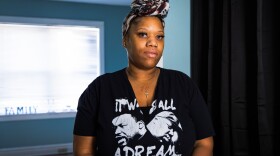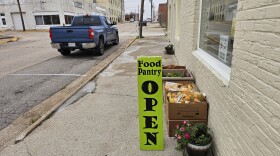-
Gina Plata-Nino is the SNAP director for the Food Research and Action Center, a national nonprofit group focused on eliminating hunger in the US, and spoke about some of the impacts changes to SNAP could have on Missourians.
-
The U.S. Department of Agriculture has approved Missouri's request to restrict the use of food stamps for the purchase of some junk food items.
-
A new Washington University study found that St. Louis' guaranteed basic income pilot program helped hundreds of families. But a lawsuit paused payments, and later crises deepened the financial strain many participants already faced.
-
The initiative, funded by the U.S. Department of Agriculture, paid producers for fruits, vegetables and proteins that were then distributed at no cost to families in need - was eliminated amid federal spending cuts.
-
Missouri has been working on updating its computer systems to improve how it administers social safety net programs since 2013. New federal rules mean that work will wait until at least 2028.
-
The Missouri Department of Social Services announced that all Supplemental Nutrition Assistance Program participants in Missouri will receive full benefits for November.
-
Messages on the USDA's homepage and several state websites have blamed both parties for the shutdown.
-
Food assistance benefits were cut off in November due to the government shutdown. That’s led a handful of state agencies to post messages blaming Republicans or Democrats for the shutdown on official websites.
-
New USDA guidance issued Saturday requested that states immediately undo any steps taken to issue full SNAP benefits.
-
Columbia businesses are looking to help out residents affected by a loss or reduction of SNAP benefits.
Play Live Radio
Next Up:
0:00
0:00
Available On Air Stations









